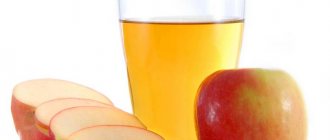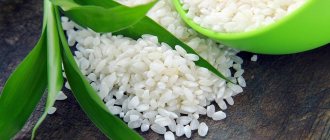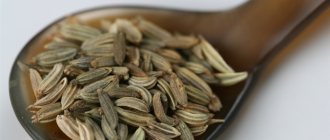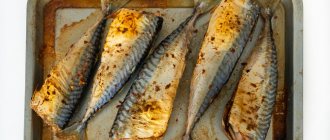Weight loss experts recommend that people lose weight wisely and thoughtfully. This process requires a reassessment of values, lifestyle changes, and correction of eating habits. In this case, professional help is needed in developing a diet and selecting physical exercises. The Doctor Bormenthal clinic uses its own patented method of losing weight and maintaining the result, with the help of which more than half a million people have already lost weight. Read more about it here -.
However, most people who lose weight firmly believe in the power of the most popular diets. One of these is a diet program based on the consumption of grapefruit.
Grapefruit is an exotic citrus fruit with a bright, rich taste. It is a hybrid of an orange and a pomelo. It was first discovered on the island of Barbados. “Grape” is translated as grapes, and “fruit” is fruit. It owes its name to its appearance: the fruits grow on trees like bunches of grapes - close to each other. The dietary properties of grapefruit can hardly be overestimated. By using it correctly, you can cleanse the intestines and strengthen the body.
Proponents of a weight loss system based on the use of grapefruit claim that it has fat-burning properties. Is this true or a myth? Is there any point in spending time on a diet to lose weight? What beneficial properties does grapefruit have? Are there any contraindications to its use? We will try to answer these questions in our article. It is worth noting that it is of a review nature and is not a guide to action. To decide which weight loss program to use, you need to consult with specialists.
The benefits of grapefruit for weight loss
The popularity of grapefruit is due to its low calorie content and its beneficial properties for the body. The fruit contains sodium, which prevents excess fluid from being retained in the body. At the same time, grapefruit produces a mild diuretic effect, due to which swelling is removed.
Among other things, grapefruit helps fight hunger and is an excellent snack option between meals. This means that the main beneficial properties are the fight against excess fluid and appetite control. Low-calorie citrus promotes active fat burning. There is an opinion that the fruit complicates the absorption of lipids from food.
The value of the red representative of the fruit world is manifested in the improvement of the body. The fiber it contains helps cleanse the intestinal tract and improves the functioning of the digestive system. The lycopene present in grapefruit is an antioxidant, which is also important.
People who are losing weight in pursuit of an ideal figure often forget about a balanced diet, putting their health at risk. The loss of nutrients in the absence of their replenishment threatens to disrupt the functioning of the immune system. And grapefruit helps to compensate for the lack of ascorbic acid, which helps strengthen the immune system and increase the overall resistance of the body. In other words, it helps fight infectious agents. Just imagine, half a fruit contains almost the daily requirement of vitamin C for an adult!
Pectin, which is part of the product, reduces the content of free cholesterol. This effect is aimed at reducing the risk of developing cardiovascular diseases. Fruit juice helps lower blood pressure.
Dieting is stressful for most people. Insomnia, apathy, and depression develop. Taking a portion of freshly squeezed juice before going to bed at night will help you fall asleep more easily and feel calm. The active components of the fruit are aimed at combating signs of fatigue and overwork.
Eating grapefruit is good for liver function. And by regularly inhaling the citrus aroma, we noticeably improve memory and concentration. This is due to the presence of fragrant essential oils in the peel.
Opinions about the benefits of fruit for weight loss vary: some consider it a miracle cure for weight loss, others are skeptical. But its help for the body is obvious. It goes well with protein foods, which you cannot do without during physical activity. Pairs well with other fruits and salads. Consuming citrus fruit in reasonable doses will only be beneficial - an indisputable fact.
Properties of grapefruit
Let us repeat and summarize the beneficial properties of citrus:
- strengthening and giving elasticity to blood vessels;
- liver cleansing;
- improvement of immunity;
- increased brain activity;
- normalization of blood pressure;
- decreased blood sugar;
- strengthening gums;
- cholesterol reduction;
- improving the functioning of the nervous system.
Calorie content of grapefruit
The topic of losing weight is not complete without discussing the calorie content of the product. 100 g of fruit pulp contains about 33-35 kcal. A glass of fresh juice - 90 kcal.
BJU in grapefruit
Based on 100 g of pulp:
- Proteins - 0.8 g;
- Fats - 0.1 g;
- Carbohydrates - 8.8 g;
Grapefruit: very healthy or very harmful?
You will be surprised, but the uniqueness of grapefruit is that no one really knows what kind of fruit it is. It is believed to be the result of natural hybridization between an orange and a pomelo. And none of its unique properties, including the effectiveness of the grapefruit diet, have yet received reliable confirmation.
We can only assume that “paradise citrus” lowers cholesterol levels, has an antibacterial, antifungal and fat-burning effect, improves the metabolism of sugar-containing substances, and, therefore, helps with diabetes and obesity... And we dream that these properties will someday be confirmed , and the latest, frankly speaking, serious statements by scientists turned out to be just assumptions.
GRAPEFRUIT AND WOMEN
Last summer, the media was full of frightening headlines: “Grapefruits cause breast cancer!”, “A quarter of a grapefruit a day is enough to become a patient of an oncologist”... Fortunately, if you look into it, it becomes obvious that most of the “horror stories” are greatly exaggerated.
Indeed, a group of American scientists from the Universities of Southern California (University of Southern California) and Hawaii (Cancer Research Center of Hawaii), having studied the health of more than 50 thousand women, came to a sensational conclusion.
Women who ate at least a quarter of a grapefruit a day had a 33% higher risk of breast cancer than those who did not consume grapefruit.
However, a number of fairly significant caveats should be made. First, this finding only applies to postmenopausal women. Secondly, other risk factors were not taken into account - solar radiation (after all, Los Angeles and Hawaii), absence/presence of childbirth/abortion and other gynecological diseases. In addition, estrogen metabolism (its disruption is precisely associated with female oncology) is affected not only by grapefruit, but also by the condition of the liver. For example, if you have liver failure, you definitely shouldn’t eat grapefruits.
In short, scientists have yet to prove the potential oncogenicity of grape. But just in case, you should be careful.
GRAPEFRUIT AND MEDICINES
But the fact that citrus is incompatible with a wide range of medications has been unequivocally proven. For example, women taking birth control pills and drinking grapefruit juice may one day discover that they are a little pregnant, and women taking antidepressants may one day find that they are not a little depressed.
| WHAT IS THE CONNECTION BETWEEN GRAPEFRUIT AND CANCER? The liver is a laboratory in which food is disassembled into “spare parts”. Several enzyme systems are responsible for this process; One of the most powerful and multifunctional is the cytochrome system. If you slow down its work, the speed of “disassembly” of chemical compounds entering the body will also decrease. Substances with this ability are called inhibitors. Several potent inhibitors of cytochromes CYP3A4 have been found in grapefruit. According to researchers, the main grapefruit troubles are associated with them. After all, this system also deals with the utilization of female sex hormones, in particular estrogen. And its increased concentration in the blood is considered one of the main causes of oncology in the mammary gland. |
The possible negative effects of combining grapefruit juice and certain medications were first warned by Dr. Kelly Morris in an article published in 1997 in the respected journal The Lancet. Three years later, specialists from the famous American Mayo Clinic confirmed her fears by discovering a dangerous increase in the concentration of cardiovascular drugs when consumed simultaneously with grapefruit juice.
A more detailed study appeared in December 2004 in The American Journal of Nursing. Among other things, a case of death was described due to the combination of grapefruit juice and lipid-lowering drugs. A certain patient had elevated cholesterol levels in the blood and a number of other risk factors for the development of atherosclerosis and coronary heart disease. He was prescribed a drug that lowers blood cholesterol. After 2 months, the patient moved from North America to Florida. The abundance of fruit and sunshine should have been good for him, but he soon developed muscle pain, weakness, ended up in intensive care and died from acute renal failure. During the debriefing, it turned out that the only thing that changed in the patient’s life after moving to the south was that he began to drink 2-3 glasses of freshly squeezed grapefruit juice every day.
In 2006, a group of scientists from the University of North Carolina led by Dr. Paul Watkins managed to identify the “pest.” It turned out to be a substance called furanocoumarin, which slows down the functioning of the cytochrome system. While the liver is busy disassembling grapefruit ingredients into spare parts, drugs circulate throughout the body, their concentration in the blood increases, reaching a dangerous level when all side effects appear at once. For example, during a study of the interaction of one of the antihypertensive (pressure-lowering) drugs with grapefruit juice, scientists found an increase in the concentration of the drug in the blood by up to 230%!
The situation is so serious that the FDA (US Food and Drug Administration) requires that all new drugs be tested for compatibility with grapefruit juice. No other citrus fruit, nor furanocoumarin-free grapefruit juice, have similar effects.
GRAPEFRUIT AND FLOUR OF CHOICE
So should you give up grapefruit? Of course not. Of course, caution doesn’t hurt, and you shouldn’t get carried away with eating “paradise citruses” and drinking juice from them, especially if you are prescribed medications.
You should not get carried away with the well-known grapefruit diet: it is recommended to eat citrus in large quantities and on an empty stomach, and this is extremely traumatic for the teeth, gums, mucous membrane of the esophagus and stomach - the acidity is too high.
Nutritionists advise limiting yourself to one fruit per week or adding a slice to a meat or fruit salad.
In moderation, grapes are great for aiding digestion. Organic acids, pectins, fiber, lignin of hard partitions, plant proteases - all this accelerates the passage of food, helps cleanse the intestines, activates liver activity and indirectly improves fat metabolism. But without physical activity and reducing your overall calorie intake, it is unlikely that you will be able to lose weight.
Well, let us remind women: the need for regular preventive examinations with a mammologist has not been canceled. Constantly postponing a visit to the doctor can do much more harm than a whole basket of grapefruits.
| PHARMACY AND CITRUS You will have to forget about grapefruit juice (especially freshly squeezed) if you are taking*: Anxiolytics: alprazolam, buspirone, midazolam, triazolam Antiarrhythmic: amiodarone, quinidine Antibiotics: clarithromycin, erythromycin, troleandomycin Antihistamines: fexofenadine Anticoagulants: warfarin Antiepileptic: carbamazepine Beta blockers:carvedilol Calcium channel blockers: diltiazem, felodipine, nicardipine, nifedipine, nimodipine, nisoldipine, verapamil Hormonal drugscontaining: cortisol, estradiol, methylprednisolone, progesterone, testosterone Immunosuppressants: cyclosporine, sirolimus, tacrolimus Hypolipidemic: atorvastatin, fluvastatin, lovastatin, simvastatin Antidepressants: sertraline, fluvoxamine Xanthines: theophylline Opioid analgesics: alfentanil, fentanyl, sufentanil Antiviral: amprenavir, indinavir, nelfinavir, ritonavir, saquinavir Anthelmintic: albendazole Antifungal: itraconazole Antitussives: dextromethorphan Antitumor: cyclophosphamide, etoposide, ifosamide, tamoxifen, vinblastine, vincristine Repotenters: sildenafil, tadalafil Finasteride (a drug for the treatment of benign prostatic hyperplasia) * Active ingredients are listed; Trade names of drugs can be very different. The name of the active substance is indicated on the packaging and in the instructions for the medicine. |
Published: March 1, 2021
When and how to eat grapefruit to lose weight
Some people lose weight on a mono-diet with fruit, others only include it in their diet. In any case, the beneficial effect of relieving swelling, removing excess fluid and defeating hunger will be ensured.
You can replace your morning meal with one fruit - the feeling of fullness will last until lunch. After dinner, 2-3 hours later, you are allowed to eat half of the citrus if you are hungry. In between meals, grapefruit can be an excellent snack.
Experts recommend eating half a fruit half an hour before a meal. The ability of citrus to suppress appetite will help you eat a much smaller portion of food.
People suffering from low acidity in the stomach are recommended to eat a quarter of the fruit before and after meals.
What is possible and what is not?
If grapefruit is one of the ingredients of the diet, then you should consider the list of permitted and prohibited foods when following it.
Recommended:
- low-fat dairy products;
- cereals;
- poultry, beef;
- white fish;
- whole wheat bread;
- vegetables fruits;
- Herb tea;
- natural compotes, fruit drinks.
Prohibited:
- pork, lamb;
- red fish;
- sauces;
- heavy cream, butter;
- fast food;
- nuts;
- rich, sweet;
- cheeses.
Combining citrus with heavy food will reduce its beneficial properties regarding weight loss. The deficiency of vitamin C will be replenished, and the weight will remain unchanged.
What effect can you expect?
The duration and diet of the diet affects the number of kilograms lost: from 4 to 10 kg.
Benefits of eating grapefruit for weight loss
Main “citrus” advantages:
- Low calorie content.
- Big sizes. Grapefruit is quite massive - after eating even half, a person will feel full.
- Decreased insulin levels in the blood. The body cannot cope with the absorption of glucose. Under the influence of citrus, it begins to convert it into energy reserves. In parallel, there is a decrease in the accumulation of fat deposits.
- Low glycemic index. Red citrus prevents sudden changes in blood sugar.
Vitamin and mineral composition
The beneficial properties of grapefruit juice are due to its rich vitamin and mineral composition. 100 g of fruit pulp contains:
| Substance | Amount in mg |
| Retinol | 0,002 |
| Tocopherol | 0,3 |
| Vitamin C | 45 |
| Thiamine | 0,5 |
| Riboflavin | 0,04 |
| Vitamin PP | 0,2 |
| Phosphorus | 18 |
| Magnesium | 34 |
| Potassium | 135 |
| Sodium | 13 |
| Calcium | 90 |
| Iron | 1 |
Are there any contraindications for use?
The composition of grapefruit contains active enzymes, due to which it will be necessary to exclude the product from the diet in the following situations:
- Taking medications. The substances that make up the fruit can enhance the effect of antihistamines, heart drops, satins, and birth control pills. Such actions can have a detrimental effect on human health.
- Pathologies of the gastrointestinal tract. Acid is the worst enemy for the body with gastritis, colitis and stomach ulcers.
- The period of pregnancy and breastfeeding. In the first trimester, the fruit has a positive effect, reducing the symptoms of toxicosis. In the following months, you will have to give up your favorite treat to avoid the risk of developing allergies in your baby. Actually, for obvious reasons, the product must be excluded from the diet while breastfeeding.
- Chronic liver and kidney diseases.
Menu for the grapefruit diet
Let's look at three main types of grapefruit diet: three-day, seven-day, four-week.
For 3 days
The three-day diet is the most intense option. A loss of 3-4 kg is promised.
Day 1:
- breakfast - half a citrus fruit or freshly squeezed juice from it, 60 g of natural ham, herbal tea without additives;
- lunch - half a citrus fruit, vegetable salad, tea made from dried leaves;
- dinner - half a citrus fruit, 100 g of boiled chicken fillet.
Day 2:
- breakfast - half a citrus fruit or freshly squeezed juice from it, a couple of boiled eggs, herbal tea;
- lunch - half a citrus fruit, 60 g of feta cheese;
- dinner - half a citrus fruit, 150 g of boiled fish meat, vegetable salad, a slice of whole grain bread, herbal tea with a teaspoon of honey.
Day 3:
- breakfast - half a citrus fruit or freshly squeezed juice from it, muesli with natural yogurt;
- lunch - half a citrus fruit, chicken breast broth with breadcrumbs;
- dinner - 100 g of boiled veal, 2 baked tomatoes.
For 7 days
Experts talk about the difficulty of following a diet for 7 days, because... high doses of fruit acid can affect stomach acidity. But metabolic processes are activated. Estimated loss of 4-7 kg.
Day 1:
- breakfast - freshly squeezed juice without added sugar, low-fat ham - 60g, green tea;
- lunch - citrus, 200 g vegetable salad with herbs;
- dinner - 100 g of grilled beef, 150 g of cabbage and corn salad, green tea with honey.
Day 2:
- breakfast - half a grapefruit, a couple of chicken eggs, green tea without additives;
- lunch - one grapefruit, 60 g low-fat cheese;
- dinner - 1500 g of lean fish meat, 250 g of vegetable salad, whole grain bread.
Day 3:
- breakfast - freshly squeezed citrus juice, muesli, low-fat kefir or yogurt;
- lunch - one grapefruit, lean chicken broth with breadcrumbs;
- dinner - boiled turkey, green tea with honey.
Day 4:
- breakfast - tomato juice, boiled chicken egg, tea;
- lunch - grapefruit, grated carrot salad, bread;
- dinner - 350 g of vegetable stew, herbal tea with honey.
Day 5:
- breakfast - fruit salad, green tea;
- lunch - baked potatoes, 150 g vegetable salad;
- dinner - 250 g of boiled veal, a glass of tomato juice.
The next two days can be made similar to any of the options.
Diet with grapefruit and egg for 4 weeks
Menu for four weeks of the egg-grapefruit diet.
First week:
- breakfast - a couple of soft-boiled eggs, half a fruit, unsweetened tea;
- lunch - any fruit, boiled vegetables, 250 g of baked chicken fillet;
- dinner - citrus fruit, 100 g of boiled minced meat with zucchini.
Second and third week:
- breakfast - scrambled eggs, half a piece of fruit and unsweetened tea;
- lunch - tomato and cucumber salad, boiled chicken fillet and a slice of low-fat cheese;
- dinner - boiled turkey meat, vegetable salad, tea without sugar.
Fourth week:
- breakfast - omelet with minced meat, unsweetened tea;
- lunch - salad of boiled carrots and peas, 150 g of boiled turkey fillet, tea;
- dinner - 150 g of pike perch, whole grain bread, 100 g of curd mass.
Recipes with grapefruit for weight loss
Some of the most interesting recipes for weight loss.
Ginger with grapefruit and honey
Pour boiling water over 3 cm of ginger root, a couple of tablespoons of honey, a couple of grapefruit slices and a small slice of lime for 10 minutes. The resulting drink is an excellent tonic. It is rich in vitamins and has a great taste.
Grapefruit salad
Peel fruits: grapefruit, kiwi, persimmon, apple and pear. Finely chop, combine and season with lemon juice.
Grapefruit in a blender
Place four large fruits, strawberries, grated ginger, milk and bananas in a blender bowl and blend. This makes a great fat-burning cocktail.
Grapefruit tea with peels
Pour boiling water over the zest of half the fruit and let it brew. The drink will help improve digestion and speed up metabolism.
Fruit smoothie
Place several citrus fruits, blueberries and strawberries into a blender and blend. Makes an excellent diet smoothie.
Baked grapefruit with cinnamon
The fruit is cut into two halves and placed on a parchment sheet. Sprinkle cinnamon on top, add a little butter and bake for 5 minutes in a preheated oven.
After training
During intense exercise, many substances are lost, so after training it is necessary to replenish vitamins and minerals. First of all, you should pay attention to vitamins A, C, E, B6 and B12, as well as elements such as iron, calcium and potassium.
Grapefruit is useful after a workout - it will compensate for the lack of essential substances, but will not provide the body with enough carbohydrates, so other products are added to the menu.
Grapefruit juice after exercise can help with muscle recovery. The drink helps reduce muscle swelling that often occurs as a result of intense exercise. Drink 1 glass of juice after training.
During physical activity, the body, in addition to microelements, loses a lot of fluid. This results in weight loss, which can be mistaken for fat loss. To replenish water and essential substances, drink isotonic drinks. You can prepare them yourself with the addition of grapefruit.
To do this, mix the following ingredients:
- 1 liter of mineral water;
- 2 tbsp. honey;
- 1 tsp salt;
- freshly squeezed grapefruit juice.











